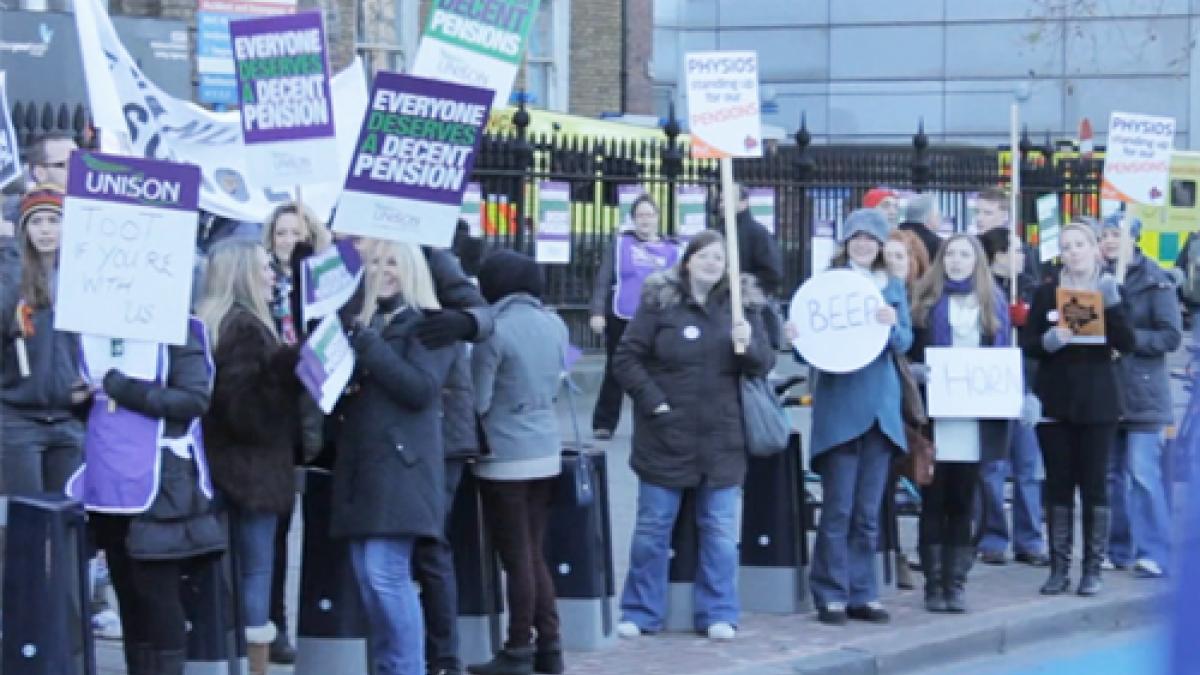The CSP has criticised government plans to change trade union rights – which will be debated in parliament this autumn – claiming they are ‘unnecessary’, ‘petty’ and ‘deliberately provocative’.

In 2011 thousands of CSP members working in the NHS turned out in support of their pensions
The society was responding to three consultations from the Department for Business, Innovation and Skills (BIS), which will feed into the second reading of the trade union bill.
The consultations relate to the government’s proposals to restrict balloting for industrial action, further restrict picketing and lift the ban on using agency workers during strikes.
As well as trade unions, industrial relations experts and human rights groups have criticised the trade union bill.
The CSP is fundamentally opposed to the proposed legislation, saying it would severely undermine the workers’ ability to protect their pay, terms and conditions and take action to protect public services.
It believes the UK already has some of the world’s most restrictive and complex legislation on balloting for industrial action.
Admin burden
A proposal to impose a threshold on public services in strike ballots would place a huge and unnecessary administrative burden on trade unions and leave them open to legal challenges, the society argues.
The bill, which would also cut workplace union reps’ 'facility time', applies to England, Wales and Scotland.
'These proposals are unnecessary, petty and deliberately provocative,’ said Claire Sullivan, director of the CSP's employment relations and union services.
If enacted, they will restrict even further the rights of CSP members to defend their jobs, pay and services to their patients. This is against the background of the UK already having some of the most restrictive workers' rights in Europe, Ms Sullivan said.
‘CSP members care passionately about their patients and would never take industrial action lightly. It is a last resort, and physiotherapy staff have gone on strike just once in the past 30 years. But they deserve fair reward for their hard work, and should have the right to defend it.
Online balloting
Ms Sullivan said the proposed legislation on balloting would make industrial action almost impossible. Online balloting would be a simple way to boost workplace democracy, she argued.
'We are deeply concerned about the proposals to remove the ban on use of agency staff to substitute for people on strike. The principle of undermining legitimate strike action is important but of particular concern are the potential quality and safety issues. Measures to protect patient safety are already central to any planning for strike action in the health sector.
‘All the evidence shows that quality patient services go hand in hand with high-quality employment. The government needs to focus on working with staff and unions to deliver the best quality care for our patients.’
Number of subscribers: 1